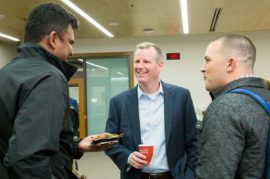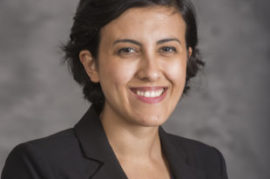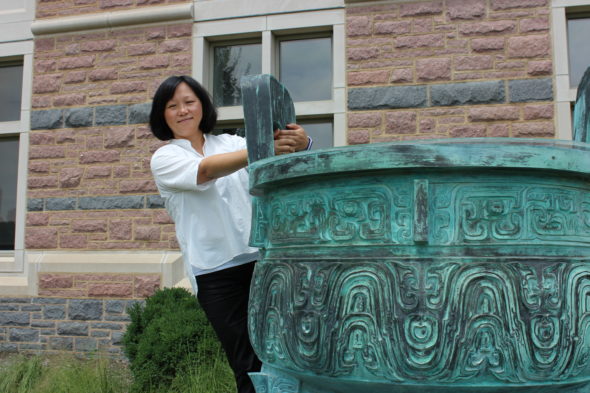“You don’t have to be the smartest person in the room, as there is no substitute for experience.” So began John Stroup when he kicked off the Defining Moments course in January, where he shared his defining moments and leadership philosophy with students at Olin Business School.
Mr. Stroup is the President and Chief Executive Officer of Belden, Inc., a Fortune 1000 industrial company based in the Saint Louis area. He is a successful business leader who has also repeatedly found himself to be both the youngest and the most senior manager in the room. Most recently, he was elected to Chairman of the Board. Prior to becoming the President and CEO of Belden Inc., he held a variety of marketing and senior management roles, including as Group Executive at Danaher Sensors and Controls.
Hearing John speak, it was clear that he is confident and competitive— traits he attributes to his upbringing and his love for sports. He walked us through his career timeline, beginning with his first job as an entrepreneurial paperboy up until becoming a CEO at age 39.
He centered his message on what he learned and carried forward throughout his career, which fell into four themes: People, Customers, Shareholders, and Self. Mr. Stroup illustrated the need to balance taking care of your people, customers, and shareholders simultaneously. He admitted that it is challenging, but it’s possible—especially if you take care of yourself.

Mr. Stroup speaks with students following the Defining Moments course.
The biggest takeaway from his message was his philosophy of constant feedback, saying everyone deserves their own “scoreboard” on how they’re doing. Creating standards and consistent communication is important in giving feedback because most people are competitive at some level. Developing a “scoreboard” is a great idea I can carry forward in my career to take care of people and customers. The question for each of us is: what would our scoreboards look like, and how are we doing?
Guest bloggers: Tony Nuber is a 2017 MBA Candidate in the Full-time MBA Program at Olin Business School. Marcianne Gagliardi is the Program Manager for the Bauer Leadership Center.












